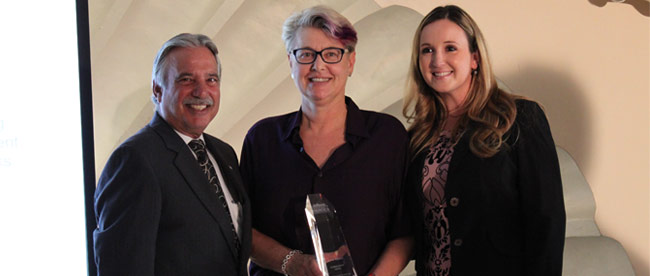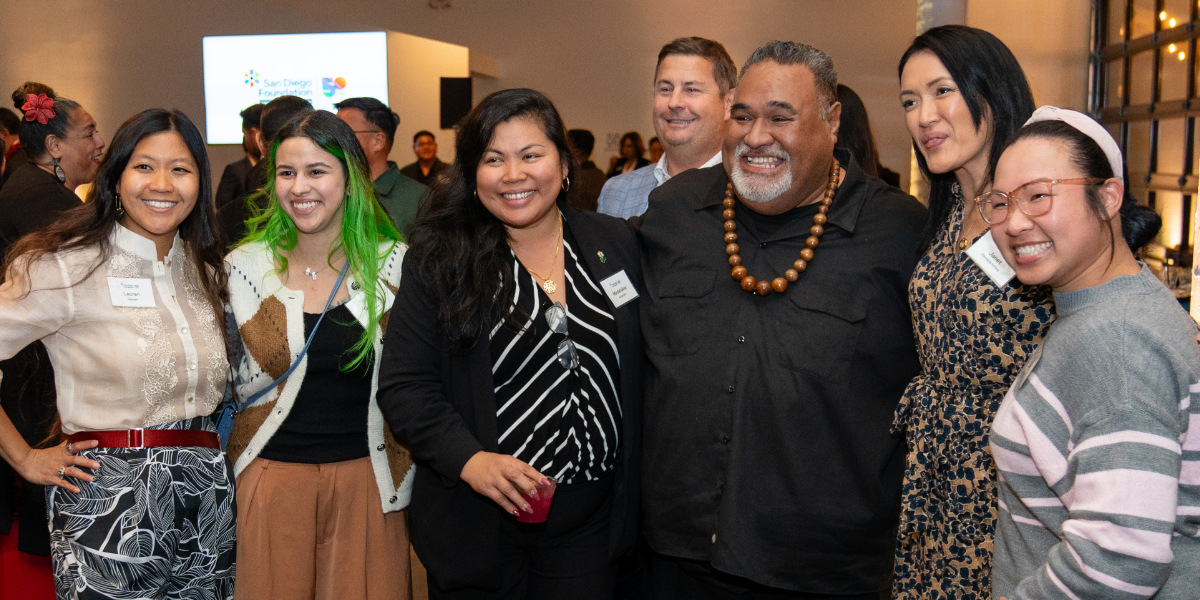The state of the San Diego housing market has quickly become one of the most pressing challenges in our region.
According to research from the California Housing Partnership Corporation, San Diego County currently needs 142,052 more affordable homes, which is defined as costing a family 30 percent or less of their income. The same report also revealed that median rent in the area has increased 36 percent since 2000, while the median household income for renters increased only 4 percent.
If supply continues to lag behind demand, San Diego’s affordable housing challenges will only grow more complex.
Promoting Dialogue and Action
As part of its efforts to increase dialogue around our most pressing regional challenges, the latest KPBS Community Heroes event placed a spotlight on the San Diego housing market.
The event, hosted as the second of a four-part series developed in partnership with the National Conflict Resolution Center, the Malin Burnham Center for Civic Engagement at The San Diego Foundation and the Jewish Community Foundation, brought about 100 community members together to discuss challenges and solutions surrounding affordable housing, as well as honor one special individual leading the way to address the affordable housing shortage.
Anne Wilson, our 2017 Community Hero, is senior vice president of housing and real estate development for Community HousingWorks, a nonprofit responsible for creating or renovating close to 3,000 affordable housing units in the region. Her leadership on projects such as the Kalos rental community in North Park and Paradise Creek in National City has been touted as a blueprint for affordable housing success in San Diego.
[embedyt] https://www.youtube.com/watch?v=zfr3TgVDINk[/embedyt]
During the event, Anne spoke about the human side of the housing problem in San Diego. “A stable, affordable home allows a family to focus on other things in their lives,” explained Anne. “They can get ahead in the world. Their children can focus on school.”
“Yet many developers today invest solely in high-end, luxury homes and apartments despite the fact that most lower and middle-class San Diegans can’t afford and don’t need those homes,” Anne remarked.
Listen to Anne describe the challenge on KPBS Midday Edition here.
[pullquote]Many developers today invest solely in high-end, luxury homes and apartments despite the fact that most lower and middle-class San Diegans can’t afford[/pullquote]
Consider the facts. As researched by the Public Policy Institute of California and National Low Income Housing Coalition:
- Renters need to earn more than three times local minimum wage, amounting to at least $6,467 per month, to afford the median asking rent of $1,940 in San Diego County
- San Diego County’s lowest-income renters spend 69% of income on rent, leaving little left for food, transportation, healthcare and other needs
- When housing costs are considered, San Diego County’s poverty rate rises from 13.9% to 20.8%
Pursuing Solutions
The challenge is only increasing and the conversations from the KPBS Community Heroes event revealed that every San Diegan has a role to play in addressing the challenge.
In addition to Anne’s work developing new affordable housing projects, leaders throughout the region are taking steps to address the challenge. For example, the City of San Diego recently announced $25 million in funding for affordable housing projects, and numerous developments, such as the Lofts on Landis in Chula Vista and Atmosphere in downtown San Diego, are making it easier for communities to grow.
As Anne outlined, “Rising costs, cuts in government funding for affordable housing investment, and many other factors contribute to the current state of the San Diego housing market.”
In order to turn the tide and solve the housing challenges we face today, community members, developers and San Diego leaders need to come together and work toward solutions that meet the needs of all families and individuals in the region.
Be part of the solution by contacting your local elected officials and encouraging them to place more emphasis on creating affordable housing in the region.




